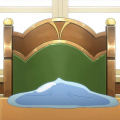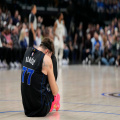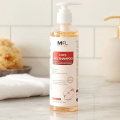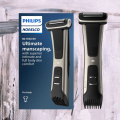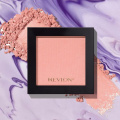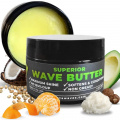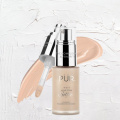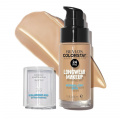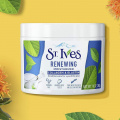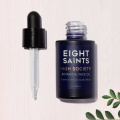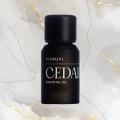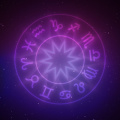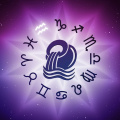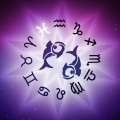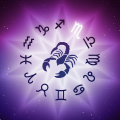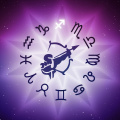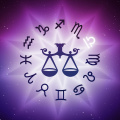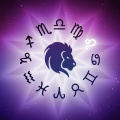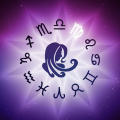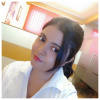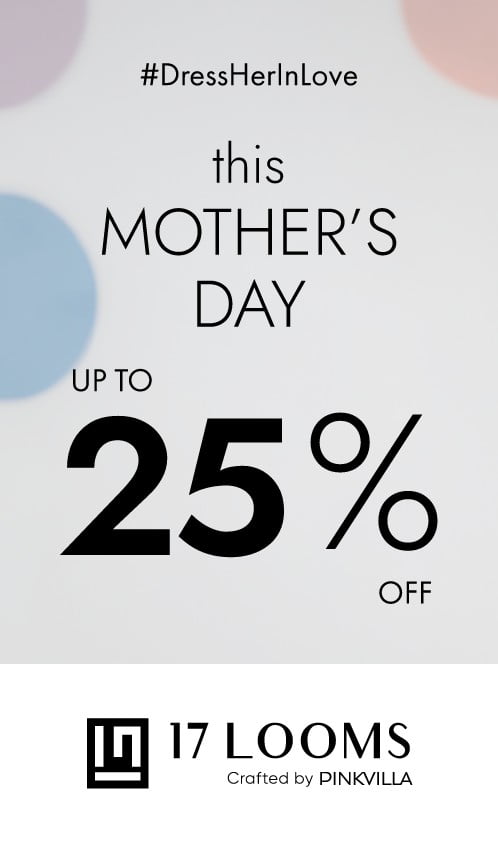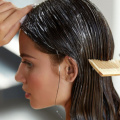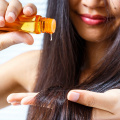Cold Sore Vs. Pimple: Key Differences, Treatment And Prevention
Cold sore vs. pimple is a comparison that may help you have an accurate diagnosis for proper management. Both may look similar but have different causes.
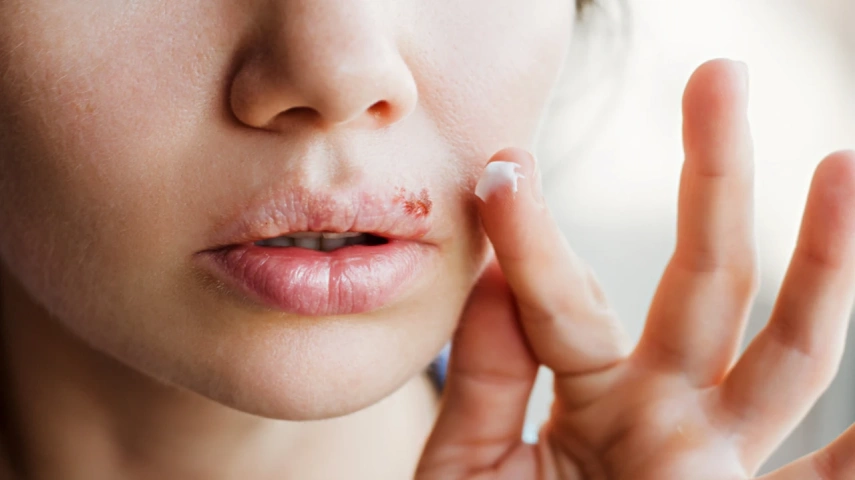
You might be baffled by a pesky blemish on your face, wondering if it's a cold sore or a pimple. Understanding the differences between these two most common skin conditions is crucial for effective treatment and peace of mind. By delving into the cold sore vs. pimple dilemma, we can shed light on their disparities, enabling you to discern between the two and make informed decisions when it comes to addressing these unwelcome facial visitors.
Cold sores and pimples may share a similar appearance, but they originate from distinct causes and require different approaches for management. Cold sores appear specifically over the lips and are caused by a viral infection, while pimples may share their range within different parts like the back, hands, or face as a result of a bacterial infection (1), (2). Additionally, cold sores are clusters of small pimples, while a pimple stands alone.
That’s not all. To get proper treatment for the actual condition, it is vital for you to know the exact diagnosis. If the condition persists, a healthcare professional is all you need.
What Are Pimples?
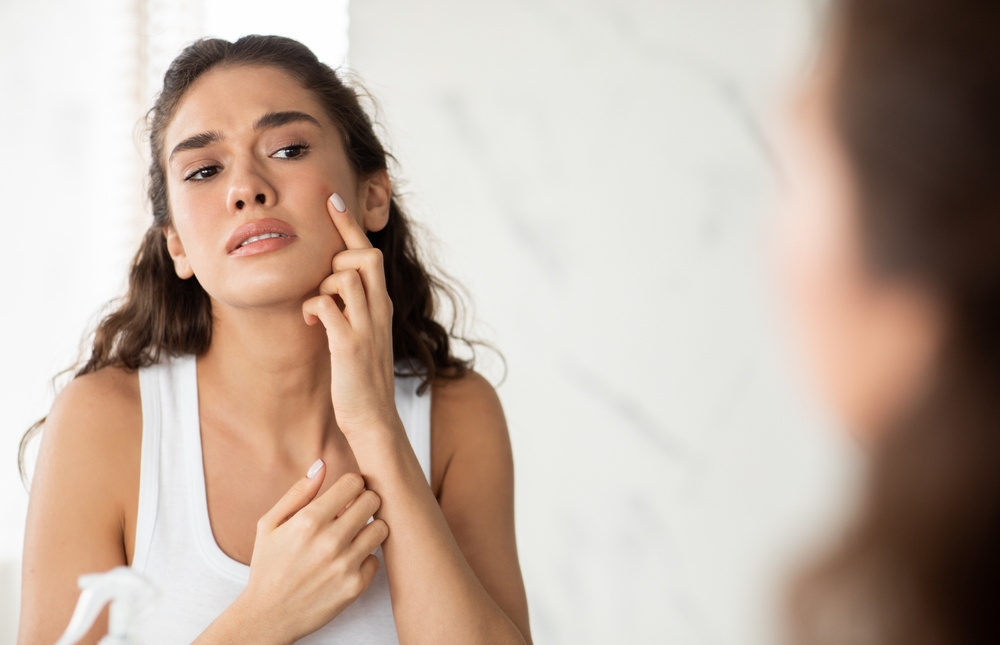
If you think it is a pimple on your lip line, the chances are high that it is a pimple. Pores, when clogged by dead skin cells and oil, result in bacterial multiplication, which eventually causes a pimple (2). The bacteria inside a pimple are the reason for an inflamed, red, pus-filled blemish (3).
You can actually feel a pimple before you can visually identify it. It usually never comes out as an overnight friend because the formation of dead skin cells and oil starts long before you see it.
There are various factors that contribute to the formation of pimples:
- Hormonal Imbalances
- Genetics
- Excessive Sebum Production
- Bacterial Infections
- Lifestyle changes
- Hygiene
- Environmental Factors
While pimples primarily occur on the face, they can also appear on the chest, back, and other parts of the body.
There are several ways to tell if the bump on your face is a pimple:
- Pimples may contain pus or a clear fluid-filled center. This is especially true for pimples that have come to a head or are in the process of healing.
- Pimples tend to persist for a few days to a couple of weeks before healing. They may go through different stages, such as starting as a small bump, developing a blackhead or whitehead on the lip, and eventually reducing in size and redness.
- Pimples are incapable of occurring only on the lips. If you see a blemish in the center of the pimple, it is more likely to be a cold sore.
What Is a Cold Sore?
Cold sores, also known as fever blisters, are the result of a viral infection that comes unwelcomely during times of weaker immunity. This herpes simplex virus never truly leaves your body and settles in, lurking in nerve cells, until triggered by certain factors (1).
Cold sores come with a tingling, itching sensation on your lip, which might be ignorable, but soon a small cluster of fluid-filled blisters emerges, forming a sore. This could be uncomfortable and painful, as the burning sensation lasts for a few days (1).
Cold sores are highly contagious and can easily spread through direct contact, such as kissing, sharing utensils, or even touching the sore and then touching another part of your body. It's essential to be mindful of this to prevent spreading the virus to others or different areas of your own body (1).
While there is no cure for the herpes simplex virus, there are ways to manage and treat a herpes pimple. Over-the-counter antiviral creams or ointments can help reduce symptoms and speed up the healing process. Applying these treatments as soon as you notice the tingling sensation is crucial to maximizing their effectiveness. In severe cases, oral antiviral medications prescribed by a healthcare professional may be necessary.
Causes of Cold Sore
Cold sores, or oral herpes, are primarily caused by the herpes simplex virus type 1 (HSV-1). HSV-1 is highly contagious and spreads through direct contact with the fluid from cold sores or through saliva. The main cause of cold sores is the transmission of the herpes simplex virus type 1. This typically occurs through close contact with an infected individual (4).
Common modes of transmission include:
- Kissing
- Oral Sex
- Shaving razors
- Sharing lip balms or lip products
- Sharing utensils
It's important to note that while HSV-1 is the primary cause of cold sores, it's also possible for the herpes simplex virus type 2 (HSV-2), typically associated with genital herpes, to cause oral herpes in rare cases. This can occur through oral-genital contact with an individual who has a genital HSV-2 infection.
What Triggers a Cold Sore?
If you have had a cold sore before, that does not necessarily mean you will get it at regular intervals. You may get one just after the first outbreak, but it can take up to a year at times for the next outbreak. However, you may get a cold sore in the cases of:
- Ill, have a cold, or flu
- Stressed
- Dehydrated
- Having hormonal issues
- Immune deficient
- Having recurrent skin injury
- Lack of sleep
Once the herpes simplex virus enters the body, it remains dormant in the nerve cells near the base of the neck or in the ganglia (clusters of nerve cells). Periodically, the virus can reactivate and travel along the nerve fibers to the skin's surface, resulting in the formation of cold sores (1).
It's important to note that not everyone infected with HSV-1 will experience cold sore outbreaks, and triggers can vary from person to person. Understanding personal triggers can help individuals manage and reduce the frequency of outbreaks. If you experience frequent or severe outbreaks, it's advisable to consult a healthcare professional for further evaluation and guidance on managing the condition.
What Are the Early Symptoms of Cold Sore?
Be it oral herpes, fever blisters, or a cold sore, the early symptoms vary from person to person, but they generally follow a similar pattern.
One of the earliest signs of a cold sore is a tingling or itching sensation in the area where the sore is about to form. This sensation is often felt a few hours or a day before the appearance of a visible sore. Following the tingling or itching, the affected area may become red, swollen, or inflamed. There can be a noticeable change in the skin's appearance, and the area may feel tender or sore to the touch. This redness and swelling are indications that the virus is actively replicating and causing an immune response (1).
Soon after the tingling and redness, small fluid-filled blisters start to develop. These blisters are usually clustered together and are commonly found on or around the lips. However, they can also appear on the nose, chin, cheeks, or inside the mouth. These blisters are a clear sign of an ongoing cold sore outbreak.
After a few days, the fluid-filled blisters may burst, releasing the liquid, and forming a crust or scab. The scabbing stage indicates that the sore is in the healing process. During this time, the body's immune system is working to repair the damaged skin and heal the sore.
Home Remedies for Cold Sores
Home remedies can provide relief from cold sore symptoms and promote healing. Here are some popular options:
1. Ice Pack Or Cold Compress
Applying ice packs or cold compresses to the affected area acts as a numbing agent and can help reduce the pain, swelling, and itching associated with cold sores (5). To help reduce the cold sore pain on the lip, our contributor, Dr. Zeeshan Afzal, Medical officer at Welzo - an online healthcare platform recommends over-the-counter creams containing docosanol or benzocaine. He says, “These creams can help numb the area and alleviate pain. Applying a cold compress or ice wrapped in a cloth to the sore can also provide relief. Keeping the area moisturized with lip balm or ointment can prevent cracking and further discomfort. If the pain persists or worsens, it's advisable to consult a healthcare professional.”
2. Over-the-Counter (OTC) Creams and Ointments
Many OTC creams and ointments are available that contain ingredients like docosanol or benzyl alcohol, which can help relieve pain and promote healing. Follow the instructions on the packaging for proper application (6).
3. Lip Balm Or Moisturizer

Keeping the affected area moisturized can prevent cracking and reduce discomfort. Look for lip balms or moisturizers containing ingredients like petroleum jelly or beeswax and apply them regularly.
4. Try Herbal Remedies
Certain herbal remedies have been traditionally used to treat cold sores. Examples include aloe vera gel, lemon balm extract, and tea tree oil. Apply these remedies topically to the affected area, following the instructions on the product (7), (8).
To use lemon balm extract or tea tree oil, take the product on a cotton swab and apply it directly to the sore. You can also dilute it with other oils to avoid the burning sensation and apply it up to four times a day. In case you opt for aloevera gel, this can be directly applied to the sore without any dilution for a soothing and anti-inflammatory effect.
5. Antiviral Medications for Cold Sores
Antiviral medications can help reduce the severity and duration of a cold sore outbreak. They are available in topical or oral forms and require a prescription from a healthcare professional. Common antiviral medications for cold sores include:
Acyclovir
Acyclovir is an antiviral medication available in various formulations, including creams, ointments, and oral tablets. It can help reduce the duration and intensity of cold sore symptoms when used as directed (9).
Valacyclovir
Valacyclovir is an oral antiviral medication that is highly effective in treating cold sores. It is usually taken as a single, high-dose treatment at the onset of symptoms or as a daily suppressive therapy for recurrent outbreaks (10).
Famciclovir
Famciclovir is another oral antiviral medication that can be prescribed for cold sores. It works by inhibiting the replication of the herpes virus, thus reducing the severity and duration of the outbreak (11).
How to Treat And Prevent Pimples on the Lip Line
Treatment

While your doctor could give you the best advice for treating pimples based on the location and severity of the pimple. However, mild, frequent pimples could be treated with the help of the following:
3. Treating a cold sore vs. pimple is not rocket science but is different. The only thing you need for getting away with a pimple is hygiene. So, the first step is to restrain yourself from popping a pimple, this only spreads it more. Next, avoid using harsh soaps and vigorous scrubbing. Lastly, try to wash your face with lukewarm water twice a day to avoid dirt buildup.
2. Use OTC creams or gels containing ingredients like benzoyl peroxide or salicylic acid. These can help reduce inflammation, kill bacteria, and promote healing. Apply a small amount directly to the pimple, following the instructions provided on the product packaging (12), (13).
1. When nothing works, home remedies come to the rescue. Aloe vera gel and tea tree oil help with inflammation while apple cider vinegar has antibacterial properties which prevent the spread of infection to other parts of your lip line (14), (15), (16).
Prevention
As it is widely said, “prevention is better than cure.” Be it a cold sore vs. pimple , you do not want either to come unwelcomely. Follow the below points to make sure you can prevent pimples without a continuous outbreak.
- Do not use products that could clog pores around your lips. Opt for non-comedogenic lip balms, and lipsticks and look for oil-free products.
- Avoid touching your face every now and then. Be mindful while you are touching your face as your hands carry more bacteria than your face does and this may lead to a bacterial infection that gets transferred to your face while touching. Hence make sure to wash your face at least twice a day.
- A healthy lifestyle can positively impact your skin health. Eat a well-balanced diet that includes plenty of fruits, vegetables, whole grains, and lean proteins. Avoid excessive intake of sugary or greasy foods, as they can potentially contribute to breakouts. Stay hydrated by drinking enough water to keep your skin and body hydrated. Additionally, manage stress levels as increased stress can potentially trigger or worsen pimples.
Cold Sore vs. Pimple: What's the Difference
Although a cold sore vs. pimple on the lip line may have some confusing physical appearances, they are poles apart when it comes down to several factors.
1. Cause: Cold sores or fever blisters are caused by the herpes simplex virus (HSV), specifically HSV-1. Since it is infected by a virus it is highly contagious and typically spreads through direct contact with an infected person or sharing items such as utensils, towels, or lip balms. Pimples, on the other hand, are typically caused by clogged pores, excess oil production, bacteria, or inflammation.
2. Location: Cold sores primarily appear on or around the lips, but they can also occur on the nose, cheeks, or chin. They often start as small, fluid-filled blisters that eventually break open and form a crust.
Pimples, on the other hand, can occur anywhere on the face, including the lips. They usually appear as raised red bumps with a white or yellow center.
3. Symptoms: Cold sores start with an itching or burning sensation before the actual appearance of blisters, which later turn into a painful burst of ulcers. A cold sore can be accompanied by other symptoms like fever, swollen lymph nodes, and general malaise.
Pimples, on the other hand, may cause localized tenderness or discomfort but typically do not present systemic symptoms like fever or form an ulcer.
4. Duration: Cold sores generally follow a distinct pattern. After the blisters burst, they will begin to heal, forming a scab that eventually falls off, usually within 1 to 2 weeks. Pimples, depending on their severity, can resolve within a few days to a couple of weeks. With proper treatment and care, pimples tend to heal faster compared to cold sores.
5. Recurrence: Cold sores have a tendency to recur. Factors such as stress, sunlight exposure, hormonal changes, and a weakened immune system can trigger recurrent outbreaks. Stating the reasons for recurrent cold sore outbreaks, our contributor, Dr. Zeeshan Afzal, says, “Recurrent cold sore outbreaks are primarily caused by the herpes simplex virus (HSV), specifically HSV-1. After the initial infection, the virus remains dormant in nerve cells near the site of the initial outbreak. Factors like stress, illness, sun exposure, hormonal changes, and a weakened immune system can trigger the virus to reactivate, leading to subsequent outbreaks. While there's no cure for HSV-1, antiviral medications can help manage and reduce the frequency of outbreaks.”
Pimples, on the other hand, may occur sporadically, but they do not have the same viral recurrence pattern as cold sores.
6. Contagious: A cold sore is highly contagious and can easily be transmitted to other people when comes in contact with an active sore.
Pimples are not contagious and are more likely a result of poor hygiene, sebum buildup, or hormonal imbalances.
Conclusion
Uncertainty regarding a cold sore vs. pimple on a lip line could be extremely worrisome. Although their appearances can be mostly indecisive, it is good to know whether it’s a pimple on a lip line or a cold sore. A cold sore is formed by a cluster of tiny blisters, while a pimple looks like a whitehead on a lip. The cause of a cold sore is a viral infection, a pimple is a result of a bacterial infection.
Recognizing these distinctions is crucial because cold sores and pimples both require different approaches to management. Cold sores necessitate antiviral treatment to address the underlying viral infection, reduce symptoms, and prevent transmission. Pimples, on the other hand, often calm down with just a proper skincare routine, including cleansing, spot treatments, and maintaining a healthy lifestyle.
By understanding the differences between cold sore vs. pimple, you can make informed decisions about treatment options and take appropriate steps to prevent their occurrence or recurrence. It is necessary to learn that although a cold sore or herpes may be a viral infection, it is not a life-threatening problem and can be controlled with simple measures to prevent further outbreaks.
Contributor: Dr. Zeeshan Afzal, MD, Welzo Medical Officer
Sources:
1. Cold sores: Overview - InformedHealth.org - NCBI Bookshelf
https://www.ncbi.nlm.nih.gov/books/NBK525782/
2. A Review of Advancement on Influencing Factors of Acne: An Emphasis on
Environment Characteristics
https://www.frontiersin.org/articles/10.3389/fpubh.2020.00450/full
3. What is Acne? Definition & Types | NIAMS
https://www.niams.nih.gov/health-topics/acne
4. Interventions for prevention of herpes simplex labialis (cold sores on the lips) - PMC
https://www.ncbi.nlm.nih.gov/pmc/articles/PMC6461191/
5. Emla versus ice as a topical anesthetic
https://pubmed.ncbi.nlm.nih.gov/11359502/
6. Clinical efficacy of topical docosanol 10% cream for herpes simplex labialis: A multicenter, randomized, placebo-controlled trial
https://pubmed.ncbi.nlm.nih.gov/11464183/
7. Aloe vera in dermatology: a brief review
https://pubmed.ncbi.nlm.nih.gov/19218914/
8. Antiviral activity of Australian tea tree oil and eucalyptus oil against herpes simplex virus in cell culture
https://pubmed.ncbi.nlm.nih.gov/11338678/
9. Acyclovir - StatPearls - NCBI Bookshelf
https://www.ncbi.nlm.nih.gov/books/NBK542180/
10. Valacyclovir versus acyclovir for the treatment of herpes zoster ophthalmicus in immunocompetent patients - PMC
https://www.ncbi.nlm.nih.gov/pmc/articles/PMC6464932/
11. Famciclovir: review of clinical efficacy and safety
https://pubmed.ncbi.nlm.nih.gov/8739594/
12. Clinical efficacy and safety of benzoyl peroxide for acne vulgaris: Comparison between Japanese and Western patients - PMC
https://www.ncbi.nlm.nih.gov/pmc/articles/PMC5697687/
13. Salicylic acid as a peeling agent: a comprehensive review - PMC.
14. Synchronizing Pharmacotherapy in Acne with Review of Clinical Care - PMC
https://www.ncbi.nlm.nih.gov/pmc/articles/PMC5527713/
15. Treatment of acne with a combination of propolis, tea tree oil, and Aloe vera compared to erythromycin cream: two double-blind investigations - PMC
https://www.ncbi.nlm.nih.gov/pmc/articles/PMC6298394/
16. Antimicrobial activity of apple cider vinegar against Escherichia coli, Staphylococcus aureus and Candida albicans; downregulating cytokine and microbial protein expression - PMC





 JOIN OUR WHATSAPP CHANNEL
JOIN OUR WHATSAPP CHANNEL












